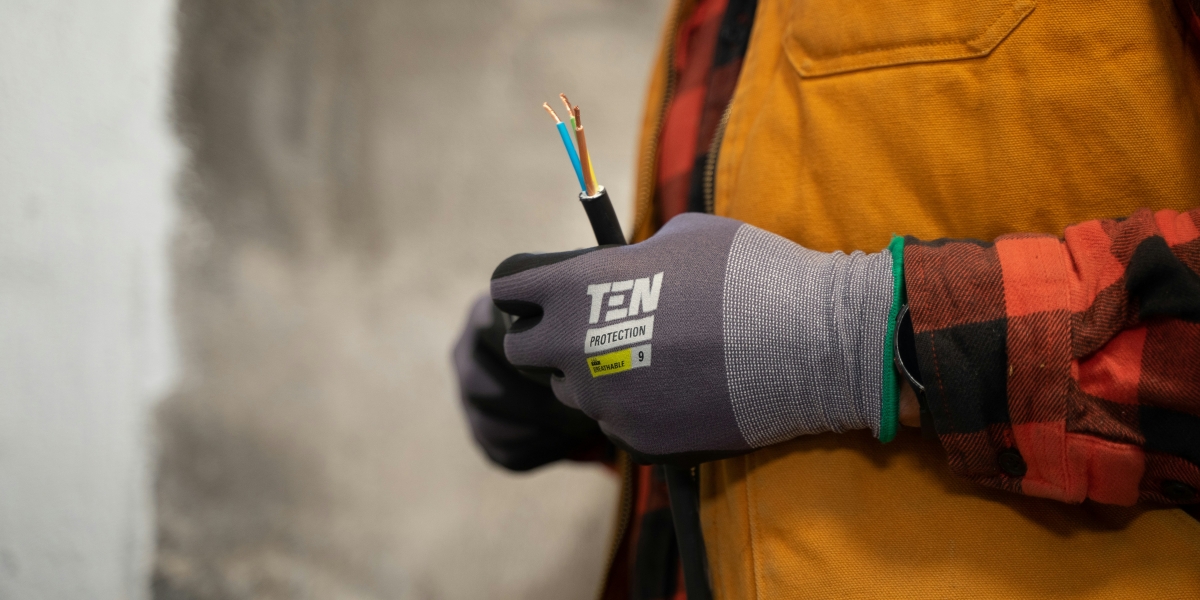By: Ethan Rogers
No matter how safe it should be in the professional parts, selecting the proper hand Gloves for the Workplace is important. The human hand remains vulnerable as a safety point that exposes workers to potential injuries from cuts, burns chemical exposure, and other dangers. As part of Personal Protective Equipment Clothing, gloves are key to guarantee workplace safety. In the construction, healthcare, manufacturing industries, and other industries, how to choose gloves is of great importance to protection and performance.
We know at METRO WORKWEAR that when it comes to quality protection gloves for the job, conditions vary. This guide will enable you to understand the key factors to choose a glove, to guarantee the safety and productivity of your personnel.
Why Choosing the Right Gloves for the Workplace Matters
Gloves on the right hand are not only safe but also comfortable and efficient. That wrong glove leads to discomfort, impaired dexterity, and even increases the danger of accidents. Why choosing the appropriate gloves is very important:
- Injury Prevention: Cutting down the opportunity of cuts, burns, and chemical exposure.
- Enhanced Grip & Dexterity: Allows better handling of tools and materials.
- Compliance with Safety Standards: Assist organizations fulfill sector norms as well as lawful demands.
- Productivity at Work: Comfortable gloves allow employees to do their job effectively and efficiently.
Factors to Consider When Selecting Workplace Gloves
1. Identify the Workplace Hazards
Various industries use hand protection with various distinctions. Before buying gloves, evaluate the hazards you have on the job site. Common hazards include:
- Mechanical Hazards: Massage cuts, puncture wounds, abrasions, impact.
- Chemical Exposure: Acids, solvents, and harmful substances.
- Thermal Risks: Extreme heat or cold.
- Electrical Risks: Protection against electric shocks.
- Biological Hazards: Exposure to bacteria, viruses, and contaminants.
2. Choose the Right Glove Material
The material of gloves is very important to provide protection and comfort. Here are commonly used glove materials found in various workplaces:
- Leather Glove: Specifically for common work performed such as welding construction work.
- Nitrile Gloves: Chemical-resistant and suitable for medical, laboratory, and food industries.
- Latex Gloves: Flexibility in gloves is great as well as comfortable however may trigger allergic reactions. Best used for healthcare/Laboratory.
- PVC and Rubber Gloves: Excellent for handling chemicals and wet conditions.
- Cut and Heat Resistant Kevlar Gloves: Used in glass release and leading in manufacturing.
3. Consider Fit and Comfort
Poorly fitting gloves can cause decreased productivity and enhance the chance of elevated hazards. When selecting gloves, ensure they:
- Fit snugly without restricting movement.
- Give enough dexterity for fine work.
- Provide breathable material to reduce sweat.
4. Understand Safety Standards and Certifications
Industrie has particular safety standards that gloves must stay on par with. Look for certifications such as:
- EN 388: Protection against mechanical risks.
- EN 374: Protection against chemicals and microorganisms.
- ANSI/ISEA Standards: Used in North America for industrial gloves.
- Ensuring conformity to these standards ensures that employees receive the very best protection they can get.
5. Select Gloves Based on Job-Specific Requirements
Different tasks require different gloves. Here’s a fast one-source guide according to industry demands:
- Construction & Engineering: Leather or impact-resistant gloves.
- Healthcare & Laboratory: Latex or nitrile gloves for hygiene and chemical resistance.
- Manufacturing & Warehouse Work: Cut-resistant or coated gloves that give a better grip.
- Food Industry: disposable gloves quality as per hygiene rules.
- Welding & Metal Work: Heat-protecting gloves, for example, Kevlar(as used for military flame-resistant gear)
How METRO WORKWEAR Can Help
At METRO WORKWEAR, We specialize in a huge variety of Premium Quality gloves for the workplace to suit most business needs. Our range of products includes hard, comfortable, and safe-toe STD English women. Whether you require chemical-resistant gloves, cut-resistant, or general-purpose purpose are available in our products.
FAQs
1. At how often workplace gloves be replaced?
The replacement frequency is up to the glove type and usage conditions. Disposable gloves ought to be replaced after just one use while heavy-duty gloves should be inspected periodically for wear and replaced appropriately.
2. Can one sort of glove be suited for all tasks performed on the job?
No, different tasks require different levels of protection. The selection of gloves ought to be based on the precise workplace hazards to achieve the best safety and most optimal working conditions.
Conclusion
Choosing the right gloves for workplace purposes is vital for safety, compliance, and performance. By taking a look at workplace danger, glove materials, safety criteria, as well as fit, employers can offer the ideal defense for the workers.
At METRO WORKWEAR our goal is to provide the finest personal protective equipment clothing to ensure your workforce is safe and performing well. Organize our range of gloves now to locate that perfect fit for your industry’s specifications.
Published by Anne C.









